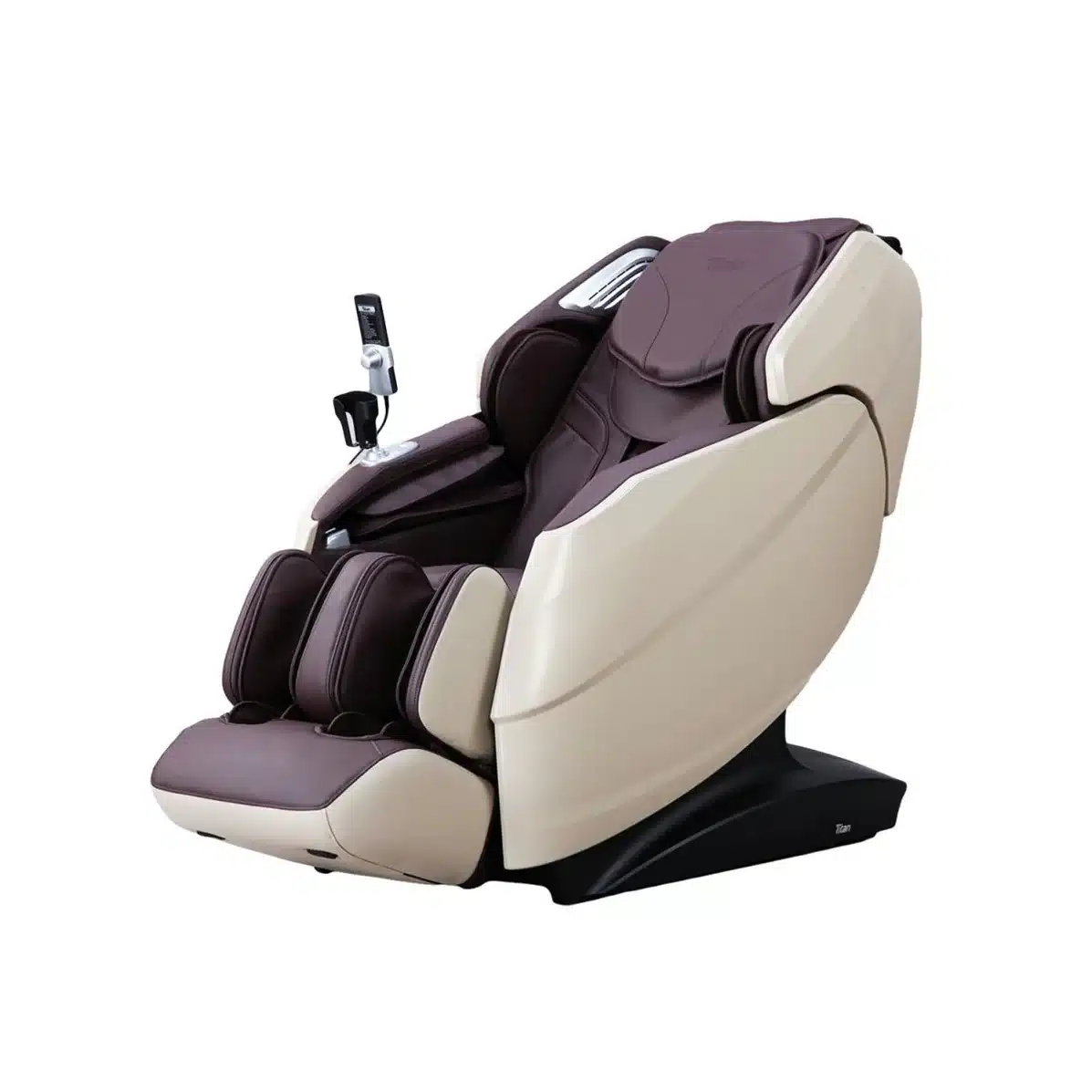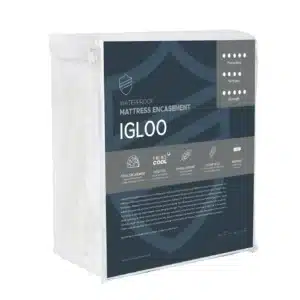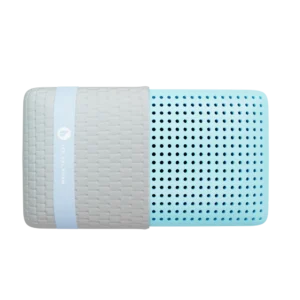Welcome to the fascinating world of sleep—a crucial yet often overlooked aspect of our lives. Sleep plays a vital role in our physical, mental, and emotional well-being, and a good night’s rest can be the key to improved productivity, creativity, and overall health.
As we become more aware of the importance of sleep, researchers and scientists are putting their best foot forward to uncover the mysteries of slumber. From exploring the complexities of the sleep process to finding innovative solutions for sleep disorders, the field of sleep research is experiencing a renaissance like never before.
In this in-depth article, we’ll take you on a journey through the future of sleep, examining the latest breakthroughs in sleep science, cutting-edge technologies, and revolutionary practices that have the potential to transform the way we rest and rejuvenate. So, get ready to embark on a voyage to a well-rested and healthier future!

The Science of Sleep: Current Understanding and Future Directions
Our understanding of sleep has evolved significantly over the years. We now know that sleep is composed of different stages and cycles, each serving a specific purpose in maintaining our overall health. These stages include REM (rapid eye movement) sleep, where dreaming typically occurs, and NREM (non-rapid eye movement) sleep, which is further divided into light and deep sleep. Our bodies cycle through these stages multiple times during the night, guided by our internal biological clock, known as the circadian rhythm.
Emerging theories in sleep research continue to shed light on the multifaceted nature of sleep. Scientists are exploring the role of sleep in memory consolidation, emotional regulation, and physical health. As our understanding of the sleep process deepens, we can expect revolutionary advancements in sleep enhancement technologies to help us harness the full potential of our restorative slumber.
Sleep Disorders: Diagnosing and Treating the Sleep-Deprived
In today’s fast-paced society, sleep disorders are becoming increasingly common, impacting millions of people worldwide. Insomnia, sleep apnea, and restless leg syndrome are just a few examples of conditions that can disrupt our sleep and impair our quality of life. The good news is that innovative diagnostic tools and treatment methods are being developed to address these issues.
Wearable sleep monitors and advanced sleep labs are paving the way for more accurate and efficient sleep disorder diagnosis. Meanwhile, breakthrough treatments, such as cognitive-behavioral therapy for insomnia (CBT-I), pharmacological advancements, and alternative therapies, are providing relief for those struggling with sleep disturbances.
Sleep Optimization: The Quest for the Perfect Night’s Rest
As we move towards the future of sleep, the concept of sleep optimization is gaining momentum. This involves tailoring sleep to an individual’s unique needs and preferences, ensuring the most restorative and rejuvenating rest possible. Personalized sleep recommendations, powered by genetic testing and AI-driven sleep coaching, are becoming more accessible, empowering people to take control of their sleep health.
Environmental factors, such as smart bedroom technologies and sleep-friendly urban planning, also play a crucial role in optimizing sleep. By adopting lifestyle changes, including proper nutrition, regular exercise, and stress management techniques, we can further enhance our sleep experience and overall well-being.
Stay tuned as we delve deeper into the ethical and societal implications of sleep innovations, and explore how a holistic approach to sleep can lead to a well-rested, healthier future for all.
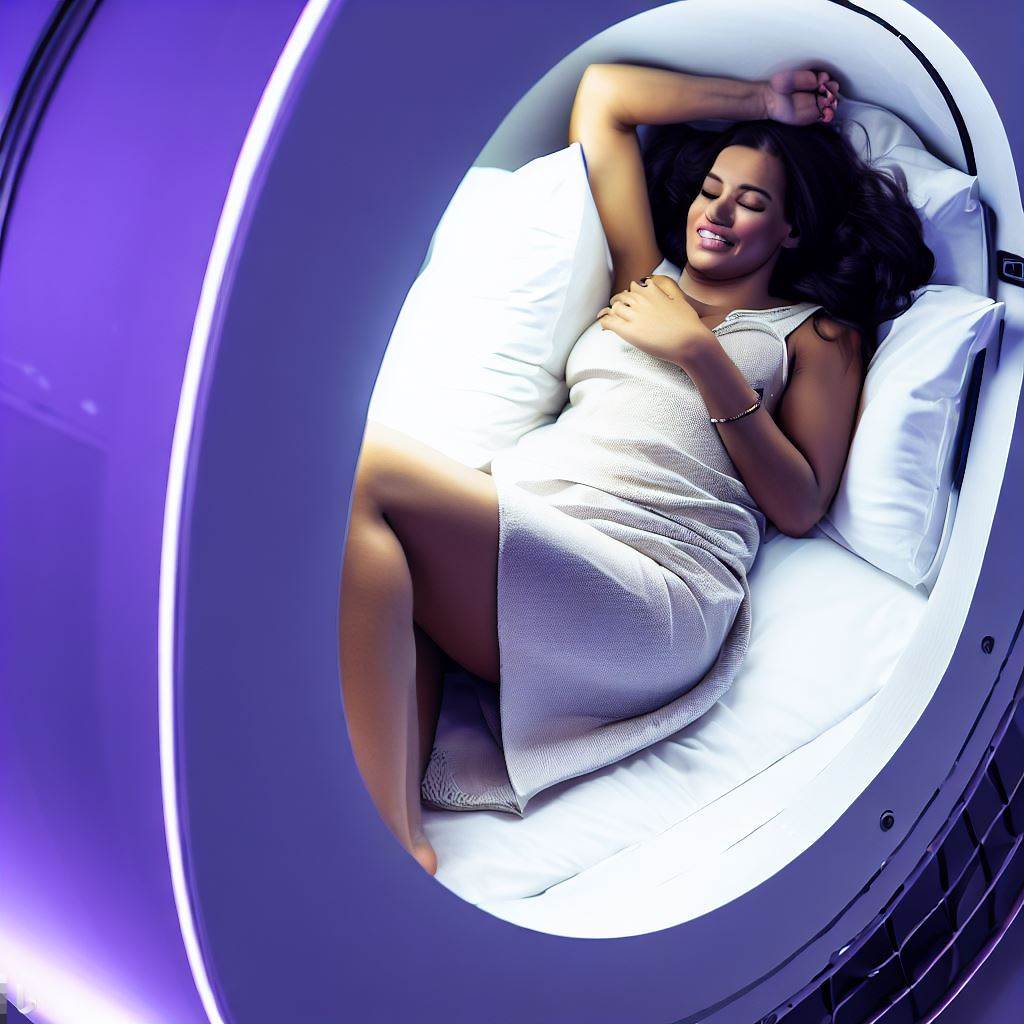
Sleep Disorders: Diagnosing and Treating the Sleep-Deprived
Sleep disorders are increasingly affecting millions of people around the globe, leaving them struggling to get a good night’s rest. From insomnia and sleep apnea to restless leg syndrome and narcolepsy, these common sleep disorders can significantly impact our quality of life, health, and well-being. Thankfully, advancements in technology and innovative treatments are making it easier to diagnose and treat these issues.
In the realm of sleep disorder diagnosis, wearable sleep monitors and advanced sleep labs are leading the charge. Wearable sleep monitors offer the convenience of tracking sleep patterns and detecting potential sleep issues from the comfort of our homes. On the other hand, advanced sleep labs provide comprehensive sleep evaluations in controlled environments, allowing for more accurate assessments and targeted treatment plans.
As for the treatment of sleep disorders, cognitive-behavioral therapy for insomnia (CBT-I) is emerging as a highly effective, non-pharmacological approach. CBT-I focuses on identifying and changing negative thought patterns and behaviors that contribute to sleep problems, equipping individuals with strategies for long-term sleep improvement.
Pharmacological advancements are also providing new and improved medications with fewer side effects, ensuring that individuals receive the most effective treatment for their specific sleep disorder. For those seeking alternative therapies, holistic approaches such as acupuncture, yoga, and meditation are gaining traction as complementary treatments to traditional methods.
By embracing a combination of cutting-edge diagnostic tools and innovative treatments, we’re taking significant strides toward helping those with sleep disorders find the rest and relief they desperately need. As we continue to advance our understanding of sleep and its intricacies, the possibilities for a well-rested future become more promising than ever.

Sleep Optimization: The Quest for the Perfect Night’s Rest
In our pursuit of a better night’s sleep, the concept of sleep optimization has gained momentum. This exciting approach aims to tailor sleep to an individual’s unique needs and preferences, ensuring the most restorative and rejuvenating rest possible.
One aspect of sleep optimization is personalized sleep recommendations, powered by genetic testing and AI-driven sleep coaching. Genetic testing for sleep profiles can reveal insights into our sleep patterns and predispositions, helping us make informed decisions about our sleep habits. Meanwhile, AI-powered sleep coaching apps can analyze our sleep data and provide personalized guidance to improve sleep quality and overall well-being.
Environmental factors play a significant role in sleep optimization as well. Smart bedroom technologies, such as adjustable mattresses, temperature-regulating bedding, and ambient lighting systems, can create an ideal sleep environment tailored to our preferences. Sleep-friendly urban planning, which considers factors like noise pollution and access to green spaces, can also contribute to better sleep for urban dwellers.
Lifestyle changes can further enhance our sleep experience. Nutrition plays a vital role in sleep quality, as certain foods and drinks can either promote or disrupt sleep. Adopting a well-balanced diet, rich in sleep-promoting nutrients, can help set the stage for a restful night. Regular exercise has been shown to improve sleep quality and duration, while stress management techniques, such as mindfulness and relaxation practices, can help calm the mind and prepare us for a peaceful slumber.
As we continue to explore the future of sleep, it’s essential to consider the ethical and societal implications of sleep innovations. Balancing privacy concerns with sleep tracking, establishing ethical guidelines for sleep enhancement, and promoting sleep education and awareness will be crucial in ensuring that these advancements benefit all members of society. By taking a holistic approach to sleep, we can work towards a well-rested and healthier future for everyone.

Ethical and Societal Implications of Sleep Innovations
As we forge ahead into the future of sleep, it’s crucial to consider the ethical and societal implications of the innovations and technologies we develop. While advancements in sleep science have the potential to improve our overall well-being, they also raise important questions and concerns that warrant careful examination.
One central debate revolves around the use of sleep enhancement technologies. While these innovations promise to help us sleep better and more efficiently, they also raise concerns about possible misuse, addiction, or over-reliance. Establishing ethical guidelines and responsible usage practices for sleep enhancement is essential to avoid potential negative consequences.
Another area of concern is the potential consequences of sleep optimization on our society. As we strive for better sleep and increased productivity, we must consider the possibility of exacerbating sleep inequality. Access to advanced sleep technologies and personalized sleep coaching may be limited to those with the means to afford them, further widening the gap between the well-rested and the sleep-deprived. Ensuring equitable access to sleep innovations is key to promoting a more inclusive and well-rested society.
Privacy concerns surrounding sleep tracking technologies also warrant attention. With the proliferation of wearable sleep monitors and AI-powered sleep coaching, it’s important to safeguard the sensitive personal data that these devices collect. Establishing robust data protection and privacy regulations can help mitigate potential risks and maintain public trust in sleep technology.
The Future of Sleep: A Holistic Approach
As we continue to unravel the mysteries of sleep and harness the power of emerging technologies, embracing a holistic approach to sleep is more important than ever. Recognizing sleep as a fundamental human need, integrating sleep innovations into our daily lives, and promoting sleep education and awareness are crucial steps towards a healthier, more well-rested society.
By prioritizing sleep in our personal lives, public policy, and urban planning, we can create a future where everyone has access to the restorative power of a good night’s sleep. As we continue to invest in sleep research and innovation, we have the opportunity to transform not only our own lives but also the well-being of society as a whole. So let’s embrace the future of sleep, and work together towards a more rested, healthier, and happier world.
Sleep Education and Awareness: The Foundation for a Well-Rested Society
A critical component of a well-rested society lies in cultivating sleep education and awareness. By empowering individuals with the knowledge and tools necessary to improve their sleep, we can foster a culture that values and prioritizes restful slumber.
Educational initiatives can target various levels, from schools to workplaces, and incorporate sleep education into existing health and wellness programs. By educating children and adolescents about the importance of sleep, we can establish healthy sleep habits from an early age, setting the foundation for lifelong well-being.
In the workplace, sleep-friendly policies and wellness programs can address the growing issue of sleep deprivation among employees. Encouraging work-life balance, implementing flexible working hours, and providing resources for stress management can promote healthier sleep habits and improve overall employee satisfaction and productivity.
Public awareness campaigns can also play a vital role in promoting the importance of sleep on a societal level. By highlighting the benefits of proper sleep and the dangers of sleep deprivation, these campaigns can foster a deeper understanding of sleep’s essential role in our overall health.
Sleep Research: The Key to Unlocking New Possibilities
As we strive to create a well-rested society, continued investment in sleep research is paramount. By exploring the intricacies of sleep, scientists can unlock new possibilities for sleep enhancement, optimization, and treatment of sleep disorders.
Multidisciplinary collaborations between neuroscientists, psychologists, urban planners, and engineers can lead to innovative solutions that address the complex nature of sleep in our modern world. Such collaborations can help us better understand the relationship between sleep and various aspects of our lives, from mental health and cognitive function to social dynamics and environmental factors.
In conclusion, the future of sleep holds immense potential for transforming the way we rest and rejuvenate. By embracing a holistic approach, prioritizing sleep education and awareness, and continuing to invest in sleep research and innovation, we have the opportunity to create a healthier, more well-rested society for generations to come. Together, let’s embark on this exciting journey towards a future where everyone can enjoy the restorative power of a good night’s sleep.
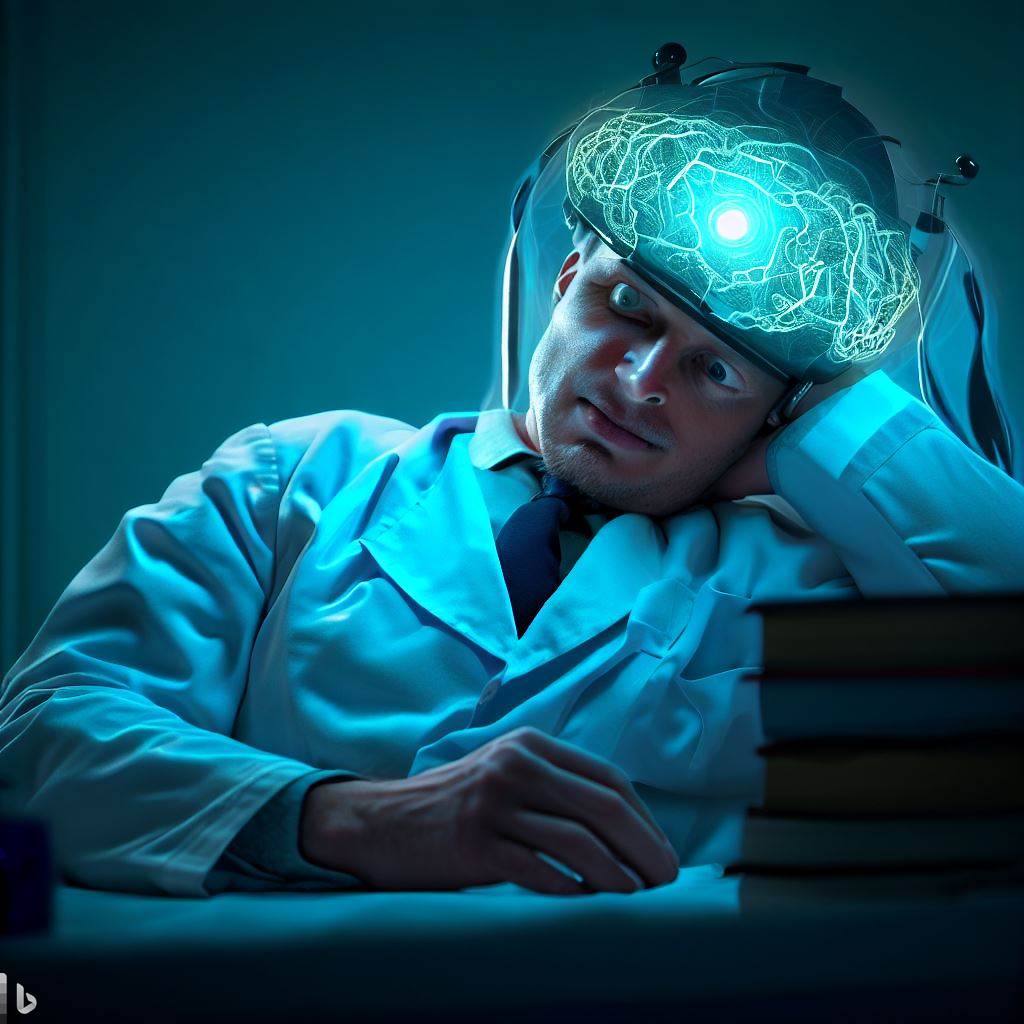
Sleep Education and Awareness: The Foundation for a Well-Rested Society
A critical component of a well-rested society lies in cultivating sleep education and awareness. By empowering individuals with the knowledge and tools necessary to improve their sleep, we can foster a culture that values and prioritizes restful slumber.
Educational initiatives can target various levels, from schools to workplaces, and incorporate sleep education into existing health and wellness programs. By educating children and adolescents about the importance of sleep, we can establish healthy sleep habits from an early age, setting the foundation for lifelong well-being.
In the workplace, sleep-friendly policies and wellness programs can address the growing issue of sleep deprivation among employees. Encouraging work-life balance, implementing flexible working hours, and providing resources for stress management can promote healthier sleep habits and improve overall employee satisfaction and productivity.
Public awareness campaigns can also play a vital role in promoting the importance of sleep on a societal level. By highlighting the benefits of proper sleep and the dangers of sleep deprivation, these campaigns can foster a deeper understanding of sleep’s essential role in our overall health.
Sleep Research: The Key to Unlocking New Possibilities
As we strive to create a well-rested society, continued investment in sleep research is paramount. By exploring the intricacies of sleep, scientists can unlock new possibilities for sleep enhancement, optimization, and treatment of sleep disorders.
Multidisciplinary collaborations between neuroscientists, psychologists, urban planners, and engineers can lead to innovative solutions that address the complex nature of sleep in our modern world. Such collaborations can help us better understand the relationship between sleep and various aspects of our lives, from mental health and cognitive function to social dynamics and environmental factors.
In conclusion, the future of sleep holds immense potential for transforming the way we rest and rejuvenate. By embracing a holistic approach, prioritizing sleep education and awareness, and continuing to invest in sleep research and innovation, we have the opportunity to create a healthier, more well-rested society for generations to come. Together, let’s embark on this exciting journey towards a future where everyone can enjoy the restorative power of a good night’s sleep.



